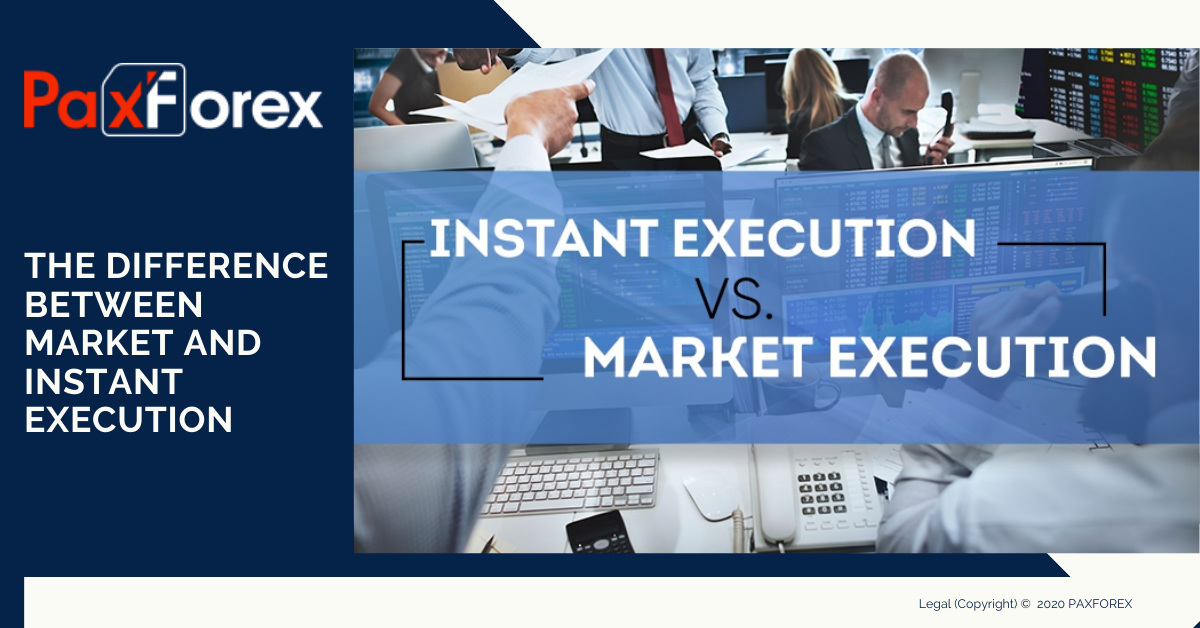
The effectiveness of the trading strategies that require entering the market at manual mode mainly depends on the techniques of order execution. There are two types of order execution – Market Execution and Instant Execution, which have major differences between them. When an investor places an order to buy or sell a currency pair, there are two fundamental execution options: place the order "at the market" or "at the limit." Market orders are transactions meant to execute as quickly as possible at the present or market price. Conversely, a limit order sets the maximum or minimum price at which you are willing to buy or sell.
All orders are processed within present priority guidelines. Whenever a market order is placed, there is always the threat of market fluctuations occurring between the time the broker receives the order and the time the trade is executed. This is especially a concern for larger orders, which take longer to fill and, if large enough, can actually move the market on their own. Sometimes the trading of an individual instrument may be halted or suspended.
With Instant Execution, orders are executed at the price predetermined by you when placing your order, if this price is still available. Since markets move fast, the price you specified may no longer be available by the time your order reaches the server. In such cases, you would experience a “re-quote”, where the system will reject your trade and offer you a new price at which it can be filled. This process may be repeated several times, depending on market volatility and broker execution speed.
Market Execution guarantees that the price will never be re-quoted, as your order is filled at the current market price. One advantage of Market Execution is that your orders will always be filled and you will enter the market with no delays caused by re-quotes. Please note however that the price at which your order is filled may be different to the one you specified, as the entry price depends entirely on the current market price.
Each type of execution has its own advantages and disadvantages. The choice of execution must be made according to your trading style and strategy. In our opinion, market execution is fairer while instant execution is safer. If you place priority on the odds of completing an order and are trading over longer time periods that are less affected by slippage, then market execution is ideal. But if the exact fill price is vital for your strategy and you trade over shorter time periods, instant execution may be more appropriate.







